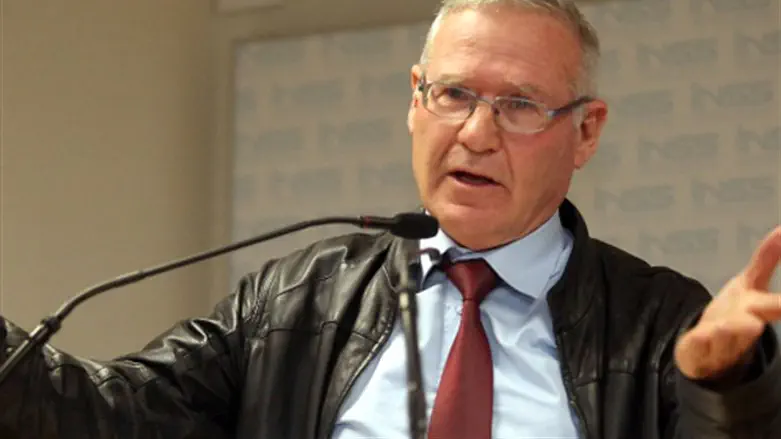
Ladies and gentlemen, when the Palestinians say "two states" they do not mean what we mean—Maj-Gen. (res.) Amos Yadlin , October 2018.
With the impending public announcement of the enigmatic “deal of the century”, pledged by the Trump administration, rumors are swirling throughout the Middle East—and beyond—as to what in fact, its real nature might be. This, together with the dramatic rise in the electoral prospects of the newly formed “Blue & White” alliance between Benny Gantz and Yair Lapid, has once again raised the ominous specter of the return of the two-state principle.
Indeed, although no authoritative preview of the detailed content of the “deal” has been provided by the White House, the little that has been released referred to it as including significant Israeli concessions. Moreover, the leaders of “Blue & White” have repeatedly referred to their approval of the principals of the INSS (Institute for National Security Studies) plan for unilateral concessions in Judea-Samaria and the throttling of all Jewish communities beyond the pre-1967 Green Line. Significantly, the INSS plan explicitly defines the “preservation of the two-state option” as its “strategic purpose”—this despite the fact that in presenting the plan at its public launch in October 2018, the head of INSS, Maj-Gen. Amos Yadlin, conceded that the attempt to implement the two-state formula has failed disastrously in the past, is unfeasible in the present, and whose implementation in the future is dangerous.
Indeed, he warned his audience that the two state prescription is “detached from reality,” recounting that “the attempt to implement the two state solution—with the Oslo Accords (1993), the Camp David Summit (2000), the Annapolis process(2008), the Kerry initiative (2014)—has failed completely, and has led [only] to impasse and bloodshed.”
Yadlin proceeded to lay out the reasons for his dismal assessment: “Theinternal Palestinian divide between Gaza and Ramallah, Palestinian political weakness, and above all the ideological extremism of the Palestinians, make any prospect of signing a comprehensive agreement unrealistic.”
Failed in past, unfeasible in present, dangerous in future
Echoing precisely what two-state opponents have been insisting on for decades, he pronounced categorically: “There is no-one to agree with, there is nothing to agree on—and the implementation [of any two-state initiative] is dangerous”.
But then, astonishingly, rather than arrive at the rational conclusion that the pursuit of the two-state objective be abandoned and alternative approaches be explored—he did precisely the opposite!
He urged that Israel should undertake a policy, set out in the INSS “plan”, that assumes that there is—or rather that there might be—someone to agree with, and something to agree on—at some unspecified future date and as a result of some unspecified process that would somehow overcome his previously stipulated obstacles of “Palestinian divisiveness, political weakness and ideological extremism.”
Yadlin’s patently perverse and paradoxical position on the two-state doctrine—or rather dogma—underscores precisely why it must be renounced—unequivocally and irrevocably.
